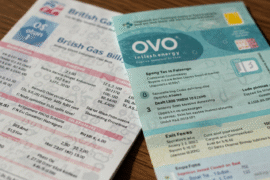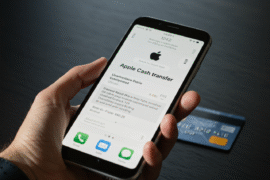This article may contain references to products or services from one or more of our advertisers or partners. We may receive compensation when you click on links to those products or services. Nonetheless, our opinions are our own.
The information presented in this article is accurate to the best of our knowledge at the time of publication. However, information is subject to change, and no guarantees are made about the continued accuracy or completeness of this content after its publication date.
- Key Highlights
- Introduction
- Understanding Credit Cards for Everyday Use
- Benefits of Using Credit Cards in Daily Life
- Risks Involved with Daily Credit Card Use
- Understanding Interest Rates and Fees
- A Beginner’s Guide to Using Credit Cards Wisely
- Preparing to Use Your Credit Card
- Step-by-Step Guide to Responsible Credit Card Usage
- Conclusion
- Frequently Asked Questions
- Recommended Reads
Key Highlights
- Credit cards offer convenience and rewards and can help build credit.
- Responsible credit card use is essential to avoid debt and financial pitfalls.
- Understanding interest rates, fees, and credit limits is key to effective credit card management.
- Building good spending habits and tracking expenses are crucial for responsible usage.
- Paying your balance in full by the due date helps you avoid interest charges and maximize rewards.
Introduction
Credit cards are widely used in today’s financial world. They offer convenience and numerous benefits, but they also come with risks. Understanding how to use credit cards wisely—including managing spending habits, interest rates, and fees—can help individuals make informed financial decisions. By weighing both the advantages and disadvantages, people can determine whether using a credit card for daily purchases aligns with their financial goals.
Understanding Credit Cards for Everyday Use
Using credit cards for daily expenses has become a common practice. However, to make smart financial decisions, it’s important to understand how credit cards work and how to manage them effectively.
What is a credit card?
A credit card is a financial tool that provides a line of credit from the card issuer, typically a bank. It allows you to make purchases or withdraw cash, with the expectation that you’ll repay the borrowed amount. Unlike a debit card, which deducts money directly from your bank account, a credit card enables short-term borrowing that must be repaid by the due date.
Each month, the card issuer sends a statement detailing your purchases, the amount owed, and the minimum payment required. Managing your credit card responsibly is essential to avoid accumulating debt and high interest charges.
Why Use Credit Cards for Daily Purchases?
Credit cards provide several advantages that make them appealing for everyday spending:
- Rewards Programs—Many credit cards offer cashback, travel miles, or points that can be redeemed for benefits.
- Security & Fraud Protection—Unlike cash, credit cards provide protection against unauthorized transactions.
- Credit Building—Responsible credit card use helps establish a positive credit history, which is crucial for obtaining loans and mortgages in the future.
While these benefits can be valuable, responsible usage is necessary to avoid financial pitfalls.
Benefits of Using Credit Cards in Daily Life
When used properly, credit cards offer significant advantages. They can help you build a strong credit history, earn rewards, and enhance purchase security.
Building Credit History
One of the main advantages of using credit cards is that they help build a strong credit history. When you consistently make on-time payments and keep your credit utilization low, this positive behavior is reported to the three major credit bureaus: Equifax, Experian, and TransUnion.
A strong credit history is essential for securing loans, mortgages, and even rental agreements. It also affects your ability to qualify for lower interest rates on financial products. However, building good credit takes time and responsible usage.
Earning Rewards and Cashback
Many credit cards come with rewards programs designed to benefit different spending habits. Common types of rewards include:
- Cashback—Earn a percentage of your spending back as statement credits or gift cards.
- Travel Rewards—Accumulate airline miles or hotel points for future trips.
- Points-Based Programs—Earn points for every dollar spent, which can be redeemed for merchandise, gift cards, or travel perks.
Choosing a card that aligns with your spending habits can maximize savings and benefits.
Enhancing Purchase Protection
Credit cards provide better purchase protection than cash or debit cards. Some of the key protections include:
- Fraud Protection—Many credit cards have zero-liability policies, meaning you won’t be responsible for unauthorized purchases.
- Purchase Protection—Coverage for stolen or damaged items within a specific timeframe.
- Extended Warranties—Some credit cards automatically extend the warranty of eligible purchases.
- Travel Insurance—Coverage for trip cancellations, lost luggage, and rental car insurance.
These features offer financial security and peace of mind when making purchases.
Voted "Best Overall Budgeting App" by Forbes and WSJ
Monarch Money helps you budget, track spending, set goals, and plan your financial future—all in one app.
Get 50% OFF your first year with code MONARCHVIP
Risks Involved with Daily Credit Card Use
While credit cards offer numerous benefits, they also come with risks. Misuse can lead to debt accumulation, poor credit scores, and financial stress.
Potential for Overspending
One of the biggest risks of using credit cards for daily expenses is overspending. Without physical cash, it’s easy to lose track of spending and accumulate a high balance.
To avoid this, establish good financial habits:
- Track your expenses regularly.
- Set a spending limit based on your income.
- Use budgeting apps or spreadsheets to monitor transactions.
Remember, credit cards are not free money—only spend what you can afford to pay off each month.
The Danger of Accumulating Debt
Credit card debt can grow rapidly due to high interest rates. Many people make only the minimum payment each month, which extends the repayment period and increases the total cost due to interest.
To prevent debt accumulation:
- Pay off your balance in full whenever possible.
- Avoid carrying high balances to minimize interest charges.
- If you have existing debt, create a repayment plan to eliminate it quickly.
Understanding Interest Rates and Fees
Before using a credit card, it’s essential to understand the different fees and interest rates:
| Fee Type | Description |
|---|---|
| Annual Percentage Rate (APR) | The interest rate charged on unpaid balances. |
| Annual Fee | Some cards charge an annual fee, though many waive it for the first year. |
| Late Payment Fee | Charged if the minimum payment is not made on time. |
| Balance Transfer Fee | A fee for transferring balances from another card. |
| Cash Advance Fee | Charged when withdrawing cash using a credit card. |
| Foreign Transaction Fee | A percentage fee for purchases made outside your home country. |
Understanding these costs ensures responsible credit card management and prevents unexpected expenses.
A Beginner’s Guide to Using Credit Cards Wisely
Using credit cards wisely helps you build credit, avoid debt, and maximize benefits.
Preparing to Use Your Credit Card
Before making purchases, review your credit card’s terms and set a spending plan. Keeping your credit utilization below 30% of your limit helps maintain a good credit score.
Selecting the right card based on rewards, fees, and interest rates is also essential.
Step-by-Step Guide to Responsible Credit Card Usage
- Pay at least the minimum amount on time to avoid late fees and credit score damage.
- Pay off your full balance whenever possible to prevent interest charges.
- Monitor your spending and stick to a budget.
- Check your credit card statement regularly for errors or fraudulent transactions.
- Avoid cash advances, as they come with high fees and interest.
- Limit new credit applications, as too many inquiries can lower your credit score.
By following these steps, you can use credit cards responsibly while maintaining financial stability.
Conclusion
Credit cards can be valuable financial tools if used wisely. They offer credit-building opportunities, rewards, and purchase protection. However, overspending and debt accumulation are serious risks. To use credit cards effectively, stay informed, monitor your expenses, and always aim to pay your balance in full. Responsible credit card management leads to financial stability and long-term benefits.
Frequently Asked Questions
How can I maximize rewards with everyday purchases?
Choose a rewards card that matches your spending habits and offers the best benefits.
What should I do if I overspend on my credit card?
Create a budget, cut unnecessary expenses, and consider a balance transfer card to lower interest.
Are credit cards safe for online shopping?
Yes, credit cards offer fraud protection and zero-liability policies. Always protect your card information.
How often should I pay off my credit card balance?
Pay your full balance by the due date each month to avoid interest and keep your credit utilization low.
Can using credit cards daily hurt my credit score?
Not necessarily—consistent, responsible usage can improve your credit score. However, high balances and late payments can lower it.

Reviewed and edited by Albert Fang.
See a typo or want to suggest an edit/revision to the content? Use the contact us form to provide feedback.
At FangWallet, we value editorial integrity and open collaboration in curating quality content for readers to enjoy. Much appreciated for the assist.
Did you like our article and find it insightful? We encourage sharing the article link with family and friends to benefit as well - better yet, sharing on social media. Thank you for the support! 🍉
Article Title: Pros and Cons of Using a Credit Card for Everyday Purchases
https://fangwallet.com/2025/02/13/pros-and-cons-of-using-a-credit-card-for-everyday-purchases/The FangWallet Promise
FangWallet is an editorially independent resource - founded on breaking down challenging financial concepts for anyone to understand since 2014. While we adhere to editorial integrity, note that this post may contain references to products from our partners.
The FangWallet promise is always to have your best interest in mind and be transparent and honest about the financial picture.
Become an Insider

Subscribe to get a free daily budget planner printable to help get your money on track!
Make passive money the right way. No spam.
Editorial Disclaimer: The editorial content on this page is not provided by any of the companies mentioned. The opinions expressed here are the author's alone.
The content of this website is for informational purposes only and does not represent investment advice, or an offer or solicitation to buy or sell any security, investment, or product. Investors are encouraged to do their own due diligence, and, if necessary, consult professional advising before making any investment decisions. Investing involves a high degree of risk, and financial losses may occur including the potential loss of principal.
Source Citation References:
+ Inspo












































